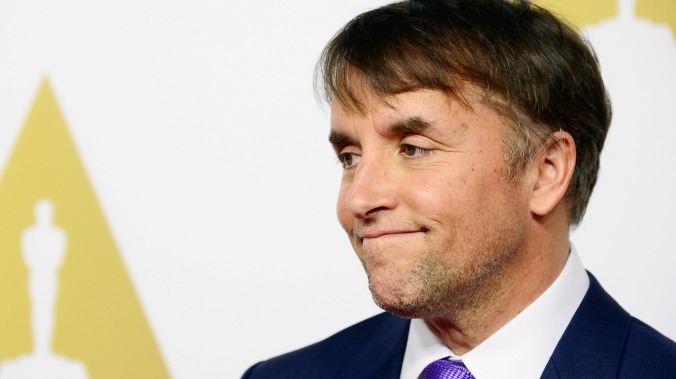Here's what Richard Linklater's 20-year production schedule for Merrily We Roll Along looks like

It’s easy to be skeptical of Richard Linklater’s announced adaptation of Stephen Sondheim’s Merrily We Roll Along, which he plans to film with stars Ben Platt and Beanie Feldstein over the next 20 years. That would allow the characters to truly age—or de-age, as the musical’s story unfolds in reverse—to help convey the story’s themes about the passage of time and the impact of a life lived. It’s a great idea, but, like, it’s hard to get your best pals together for dinner once a month. The concept of continually corralling some of Hollywood’s most in-demand talent on such a consistent basis—especially on a planet teetering on the edge of disaster—is a big ask. But, in a new interview with Indiewire, Platt, currently starring in Netflix’s The Politician, sounds optimistic.
“It’s too brilliant of a solution not give it a try,” he said. “Obviously it’s a lot to bite off and we’re all kinda taking a leap of faith, in that a million different things could happen that could make this not come to fruition, but everyone involved is really passionate enough to give it a try.”
Platt explains Linklater is hewing as close to the timeline of the play, which encompasses 1957 to 1976, as possible. “We did the first sequence this summer, and the idea is to follow the schematic of the show literally, in the sense that if there’s a scene that takes place in ‘57 and one in ‘61, we’ll wait four years and shoot the next one,” said Platt. “So we’re corresponding with the map of the show. Other than that, it’s sort of like—‘let’s get together and make a short film’—and then disperse, and do that nine times.”
Platt, calling the project “a brilliant marriage of that concept with this material,” says that what those not immersed in the musical world might not understand is that the approach “solves the age-old issues the piece has always had.” Merrily We Roll Along, after all, was considered a flop in 1981 after its Broadway run closed after only 16 performances.
Platt continues, “This is a piece of Sondheim’s that has always had such incredible components, and so many things in it that are is really special. There are moments in the score and conceptually, this whole idea of friendship and people becoming jaded over time, there’s always been so many brilliant pieces, but it’s never quite entirely clicked. It really has this opportunity to transcend—if it all comes together—to watch these people age backwards and get back to their naive ideological selves.”
That’s a good sell, and one we’re excited to watch with eyeballs that will, by the time it’s released in 2039, be replaced with iPhone cameras.